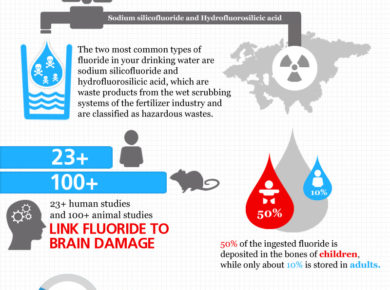People seem to be confused about folate vs. folic acid.
We are told that folate is the natural form, whereas folic acid is synthetic.
This is so far from the truth!
Let’s go over some science and facts.
There are 8 members in the folate family, and folic acid or pteroylglutamic acid (PGA) is one of them.
In other words, folic acid is found in nature!
In the video part 3 (https://www.youtube.com/watch?v=yshZelx96Ok), I go over a study that demonstrates without any doubt that folic acid is found in nature.
The title is:
“[6S]-5-methyltetrahydrofolate increases plasma folate more effectively than folic acid in women with the homozygous or wild-type 677C–>T polymorphism of methylenetetrahydrofolate reductase.”
People would say that folic acid is bad because is synthetic. This is not true at all!
In the early 1940s, researchers would extract folic acid or PGA from liver and greens like spinach. Then, years later, they found a way to synthesize it, so they no longer needed to extract it.
We have used folic acid for more than 80 years, and more than 40 000 research articles have been published on it.
My point is that folic acid has been intensively researched and it is very safe to use, even if you have MTHFR mutations as we will see later.
Methyl folate is very important because the body uses it to get rid of homocysteine.
Homocysteine is a molecule that increases inflammation in the body and is directly linked to heart disease, for example. So, the body needs to get rid of it and the main way is to use both B12 and methyl folate to convert it into methionine which is not toxic.
Then enters into the picture MTHFR gene and its associated mutations. This gene encodes for an enzyme that converts folate or folic acid into methyl folate.
There are more than 40 mutations in this gene and a dozen others in the methylation pathway. But 2 mutations are more studied: the C677T and A1298C mutations.
More than 80% of the population has either one or both of these mutations.
As you can see, it is absurd to blame those mutations on all those hundreds of health issues.
Based on the secular method of evolution, we acquire mutations over thousands and thousands of years. It is impossible that 80% of the population got those mutations over 20-30 years.
Just plain impossible!
Something else is at play here.
The genetics department of the Cleveland Clinic says that the best way to see if you have any issues with MTHFR is to check your homocysteine level.
As we saw, the body needs methyl folate to get rid of it. If the homocysteine level is high, it is an indication that you may have issues with the methylation pathway. And it is well known that folic acid lowers homocysteine!
23 and Me, one of the companies that test for MTHFR mutations, declared:
“Some websites have spread the idea that having one or two copies of an MTHFR variant can lead to dozens of negative health consequences. There are a couple of problems with this claim. First, it’s unlikely that variants in a single gene could cause dozens of unrelated health problems. Second, the C677T and A1298C variants are very common: in some ethnicities, more than 50 percent of people have at least one copy of one of these variants. Most disease-causing genetic variants are not this common.* Another claim about MTHFR is that people who carry an MTHFR variant should avoid foods that are fortified with folic acid. However, there’s no evidence that individuals with an MTHFR variant should reduce their folic acid intake.”
“Based on the existing data, scientists at 23andMe have concluded that people should not interpret their genotypes at the common MTHFR variants as having an effect on their health. In order for a connection between a genetic variant and a health condition to be considered real and clinically meaningful, well-run scientific studies need to show convincing and consistent evidence for that association. As statements from multiple scientific and medical organizations indicate, that is currently not the case for the common MTHFR variants.”
You read it right! Even this company that tests for MTHFR mutations says that there is nothing here!
I am sure you are a bit confused!
In the video part 2 on MTHFR (https://www.youtube.com/watch?v=naIw-uxfjE8), I explained why those mutations do not cause any problems. Some of the answers lie in biochemistry 101, something that most people have forgotten, which has led to so much confusion, unfortunately.
Let me try to explain this in simple terms.
We have folic acid (or folate) that is converted into methyl folate by the enzyme MTHFR. In other words, the MTHFR enzyme transforms folic acid into methyl folate.
So when there is a mutation, the enzyme activity is reduced up to 70% at the worse, meaning than 30% of the enzyme activity remains. People believe that 30% of enzyme activity is very low and causes those health issues. An enzyme is “dead” at 10% activity, so at 30%, it is still “alive.”
But based on biochemistry 101, the answer to that is to increase the concentration of folic acid. In other words, increasing folic acid pushes the reaction toward methyl folate. So people with those mutations need to take more folic acid in order to obtain methyl folate! Taking more folic acid increases the activity of the enzyme MTHFR.
It is that simple. Actually, it is part of the answer.
The other part of the answer is to make sure that the whole methylation pathway is open and working properly and optimally.
In order to do so, we need to look at these nutrients:
B12
Folate or folic acid
methionine, cysteine, taurine (proteins)
DHA
Zinc, Magnesium, Potassium
Niacin (vitamin B3)
Pyridoxine (vitamin B6)
Vitamin B1
Vitamin D
Betaine
Choline
Sulfur
Zinc
Riboflavin (vitamin B2)
These are the key to methylation, not the MTHFR mutations. In other words, making sure that you are not deficient in these nutrients is the key to optimal methylation pathway and this despite your mutation status!
The key component of this cycle is vitamin B2. Research has shown that if you take even B2, your methylation pathway.
Below are a few articles to support my point:
https://www.ncbi.nlm.nih.gov/books/NBK6145/
https://www.ncbi.nlm.nih.gov/pubmed/12560354
The last article is very interesting:
“Effect of riboflavin status on the homocysteine-lowering effect of folate in relation to the MTHFR (C677T) genotype.”
The authors conclude:
“Folate and riboflavin interact to lower plasma tHcy (homocysteine), possibly by maximizing the catalytic activity of MTHFR. The effect may be unrelated to the MTHFR genotype.”
In other words, vitamin B2 fixes the methylation pathway and this independent of the mutation status!
About 90% of the population is deficient in B2. The best sources are liver, kidney, heart, almonds, red meat, eggs, and cheese.
So the key component is B2, but we also need to make sure that the other nutrients are sufficient to get this pathway working well.
You see, there is no need to use methyl folate supplements. First, they are very expansive. Second, they are dangerous to take.
I’ve talked to several biochemists and PhDs in the field, and all of them told me that they would never supplement their diet with methyl folate.
Taking methyl folate bypasses the seven checkpoints that are there to prevent hypermethylation. You’ve got two issues going on:
1. you’ve added in a gargantuan amount of folate, potentially feeding any cancers you might have,
2. and you’ve also added a large number of methyl groups that have bypassed the safety mechanisms that your body was designed to prevent overmethylation.
So the concern here is that those methyl folate supplements can lead to cancer growth!
As a matter of fact, chemo drugs like methotrexate target this folate pathway. So it is not a good idea to use those supplements.
In all my years of working as a functional medicine doctor, I used once methyl folate supplements on a patient. She was so sick that we needed to use it to jump-start this pathway. As we were fixing that pathway with B2 supplements and addressing other deficiencies, she stopped taking the methyl folate supplement after a few months.
I have always used folic acid with patients for years, and I never encountered any problems IF the methylation pathway is open and works well. If you take folic acid and have issues, it is an indication that you are deficient in other aspects of this pathway and this has to be addressed.
Folic acid is not the problem. It is the methylation pathway that is “broken” and needs to be fixed.
Long-term supplementation of methyl folate causes a list of side effects that rival a pharmaceutical drug:
Anxiety, irritability, insomnia (from changes in neurotransmitters), sore muscles and achy joints (from reduction in glutathione production), headaches and migraines (from increased nitric oxide production), nausea, palpitations, rashes, and suicide, in addition to exacerbating B6 and B12 deficiencies, along with magnesium, zinc, copper, manganese and other mineral deficiencies.
It is bad!
The ironic part of all that is that methyl folate that you get at the store is synthetic. Yes, methyl folate is found in nature but in trace amounts.
In order to get one capsule of 400 UI, you would need at least 1 cup of lentils, 2 cups of spinach, 4 cups of broccoli, 4 papayas or 10 cups of almond, that is assuming that the extraction efficiency is 100%!
Let’s sum it up:
Most of what you have heard about methyl folate is myth, not fact
Folic acid is safe and has the same effects in the body than methyl folate
Folic acid is much better researched than methyl folate
Folic acid works just as well as methyl folate – even with people with MTHFR mutations!!
Folic acid is way cheaper than methyl folate (which is synthetic)
MTHFR mutations do not cause all the health problems they are claimed to be responsible for.
MTHFR deficiency is addressed by simply supplementing with the right amount of
Folic acid and vitamin B2.
The take-home message is this:
No one should be a victim of their diagnosis, meaning having those mutations does not mean anything. Any condition or disease is all dependent on the terrain in which it exists! In other words, there is hope to be helped even with those mutations! That is good news!
Some studies were done on the relationships of MHTFR and autism, but the evidence is very weak so far to see a causal association.
This study for example is very interesting:
“Aberrations in folate metabolic pathway and altered susceptibility to autism” published in Psychiatric Genetics: August 2009 – Volume 19 – Issue 4 – p 171-176
The authors said that out of 138 autistic and 138 non-autistic children, 9 non-autistic children have the 677T-allele MTHFR mutations and 23 autistic children have this allele.
Their conclusions state that there is an increased risk for autism if a child has the 677T allele.
But what about those 9 children who don’t have autism and do have the allele?
What about the 115 autistic kids who do not have these mutations but have autism?
In reality, this study show that the MTHFR mutations are not associated with autism. If that was the case, the great majority if not all of the autistic kids would have had the mutations.
Actually, I have seen this phenomenom regularly.
I have seen autistic kids with the MTHFR mutations and I have seen without. I have never been able to make a connection if a kid with those mutations have a higher risks of having autism or ASD.
Here’s another paper:
“MTHFR C677T is not a risk factor for autism spectrum disorders in South Brazil”
Published in Psychiatric Genetics: August 2010 – Volume 20 – Issue 4 – p 187-189
This study says MTHFR C677T is not a risk factor for autism spectrum disorders. Also done with a very small group of children: 151 autistic children and 100 healthy control children focusing on the 677T allele.
They stated:
“Many studies have suggested that autism may be associated with metabolic abnormalities in the folate/homocysteine pathway, which is involved in DNA methylation, thus altering gene expression. One of the most important polymorphisms in this pathway is C677T of the methylenetetrahydrofolate reductase gene, because the T allele is associated with a decrease in enzymatic activity. We evaluated the association between C677T polymorphism and autism spectrum disorders through a case–control study. In addition, we analyzed the influence of this polymorphism on certain autistic behaviors like complex body movements, self-injury and averted gaze according to the Autism Diagnostic Interview-Revised. The analyses involved 151 children with idiopathic autism spectrum disorder and 100 healthy control children. The frequency of the T allele was 0.38 for the case group and 0.35 for the control group (P=0.77). The genotypic distribution did not show significant differences between cases and controls (P=0.72), nor association between the T allele and selected behaviors.”
The conclusion is there is no association between the mutation C677T and autistic behaviors. The 677T allele was just as common in the non-autistic group as the autistic group.
Again, supporting my point that MTHFR mutations is not strongly associated with a higher risk of developing autism or neurological issues.
This meta-analysis is very interesting:
“Association between MTHFR gene polymorphisms and the risk of autism spectrum disorders: a meta-analysis” published in Autism Research.
“Methylenetetrahydrofolate reductase (MTHFR) is essential for DNA biosynthesis and the epigenetic process of DNA methylation, and its gene polymorphisms have been implicated as risk factors for birth defects, neurological disorders, and cancers. However, reports on the association of MTHFR polymorphisms with autism spectrum disorders (ASD) are inconclusive. Therefore, we investigated the relationship of the MTHFR polymorphisms (C677T and A1298C) and the risk of ASD by meta-analysis. Up to December 2012, eight case-control studies involving 1672 patients with ASD and 6760 controls were included for meta-analysis. The results showed that the C677T polymorphism was associated with significantly increased ASD risk in all the comparison models [T vs. C allele (frequency of allele): odds ratio (OR) = 1.42, 95% confidence interval (CI): 1.09-1.85; CT vs. CC (heterozygote): OR = 1.48, 95% CI: 1.09-2.00; TT vs. CC (homozygote): OR = 1.86, 95% CI: 1.08-3.20; CT+TT vs. CC (dominant model): OR = 1.56, 95% CI: 1.12-2.18; and TT vs. CC+CT (recessive model): OR = 1.51, 95% CI: 1.02-2.22], whereas the A1298C polymorphism was found to be significantly associated with reduced ASD risk but only in a recessive model (CC vs. AA+AC: OR = 0.73, 95% CI: 0.56-0.97). In addition, we stratified the patient population based on whether they were from a country with food fortification of folic acid or not. The meta-analysis showed that the C677T polymorphism was found to be associated with ASD only in children from countries without food fortification. Our study indicated that the MTHFR C677T polymorphism contributes to increased ASD risk, and periconceptional folic acid may reduce ASD risk in those with MTHFR 677C>T polymorphism.”
Let me explain to you what this means.
They found that the C677T mutation increases the risk of developing autism. On the other side, the other MTHFR mutation A1298C lowers the risk.
Yep, this is confusing and does not make sense.
The C677T mutations increases the risk ONLY if you are deficient in folic acid. In other words, folic acid minimize the risk of having autism (if you have or not the MTHFR mutations).
Again, this is true only if you are not deficient in the other nutrients that the MTHFR pathway requires to work properly (see above).







